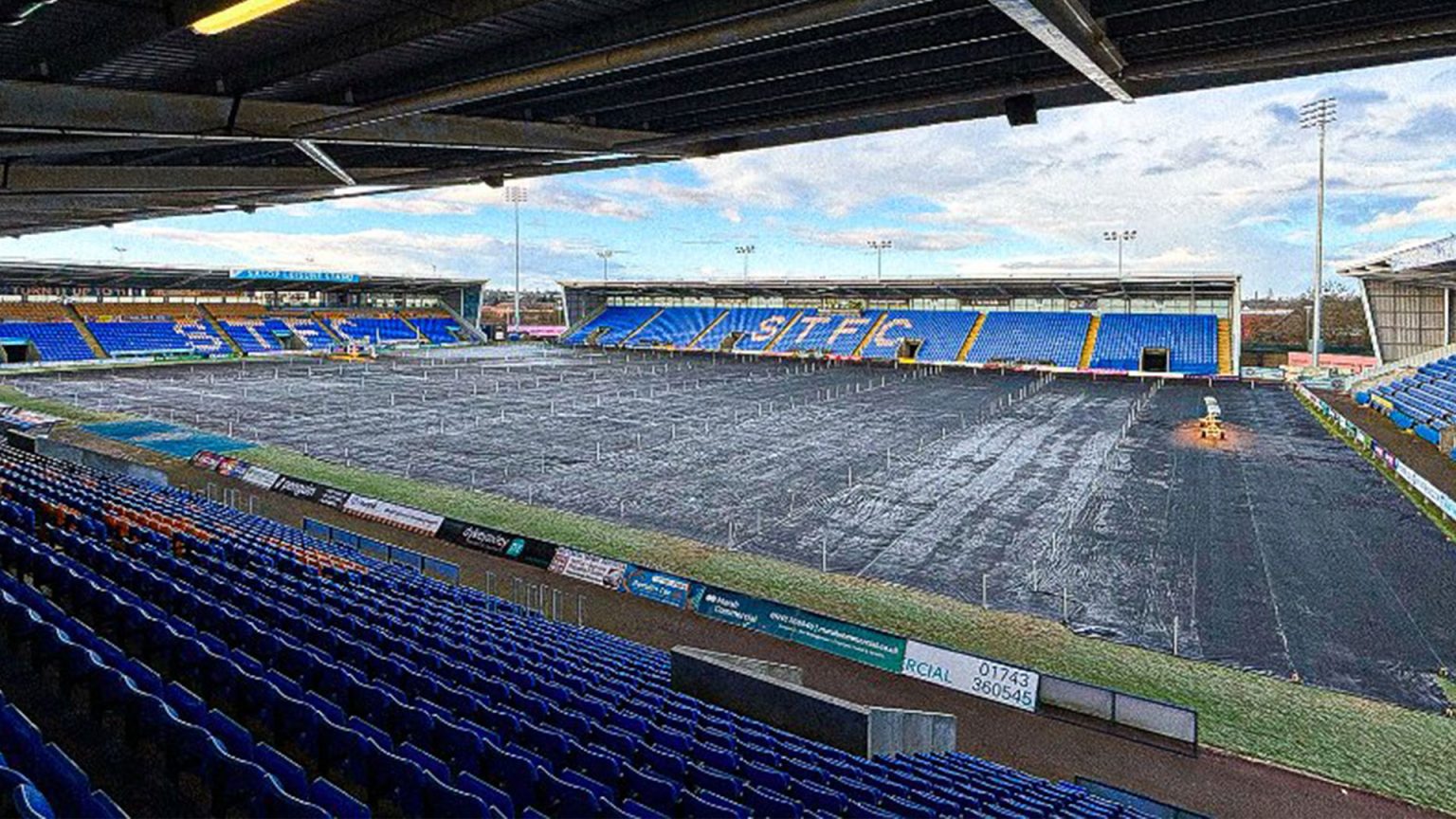The English Football League (EFL) League One match between Shrewsbury Town and Huddersfield Town, scheduled for a 3 PM kickoff on Saturday, was postponed just hours before the game due to a frozen pitch at Shrewsbury’s Croud Meadow stadium. The decision came after a pitch inspection on Saturday morning, with EFL officials deeming the playing surface unplayable due to the freezing temperatures that have gripped the United Kingdom. Shrewsbury Town’s ground staff had worked diligently throughout the week to prepare the pitch, including deploying protective covers, but the persistent cold weather ultimately rendered their efforts futile. The club released a statement confirming the postponement, assuring fans that tickets for the original fixture would remain valid for the rescheduled date, which will be announced in due course.
This postponement highlights the disruptive impact of extreme weather conditions on sporting events, particularly during the winter months. Groundskeepers face an ongoing challenge to maintain playable surfaces in the face of freezing temperatures, snow, and ice. Protective measures such as pitch covers can mitigate some of the risks, but they are not always sufficient to prevent postponements when the cold is particularly severe and prolonged. The situation underscores the importance of contingency planning and effective communication with fans when unforeseen circumstances necessitate schedule changes.
The Shrewsbury Town vs. Huddersfield Town postponement was not an isolated incident. The freezing weather also forced the postponement of the Premier League 2 match between Leeds United and Manchester United, scheduled for Friday evening. The Red Devils confirmed the decision, citing “inclement weather conditions” in Yorkshire as the reason. This further emphasizes the widespread impact of the cold snap on football fixtures across different leagues and levels of competition. The prevalence of such postponements underscores the challenges faced by football clubs and governing bodies in maintaining consistent schedules during periods of adverse weather.
The postponement of these matches not only disrupts the flow of the respective leagues but also impacts fans who had made travel arrangements and allocated time to attend the games. The financial implications for clubs can also be significant, with lost revenue from ticket sales, concessions, and merchandise. While postponements are sometimes unavoidable, they serve as a reminder of the vulnerability of outdoor sporting events to the vagaries of weather.
The decision to postpone a match is never taken lightly. It involves careful consideration of various factors, including player safety, the integrity of the playing surface, and the feasibility of rescheduling. The primary concern is always the safety of players and officials, as playing on a frozen or otherwise compromised pitch significantly increases the risk of injury. The condition of the pitch is also crucial for ensuring a fair and competitive game, as an uneven or slippery surface can significantly impact the quality of play.
In the case of the Shrewsbury Town vs. Huddersfield Town match, the decision to postpone was made after a thorough assessment of the pitch conditions by both club officials and EFL representatives. The ground staff had made every effort to prepare the pitch, but the severity of the freezing temperatures ultimately made it impossible to ensure a safe and playable surface. The postponement, while disappointing for fans, was the responsible decision given the circumstances. The priority remained the safety of the players and the integrity of the competition. The clubs will now work to reschedule the fixture at the earliest possible opportunity, while fans await the new date with anticipation.




